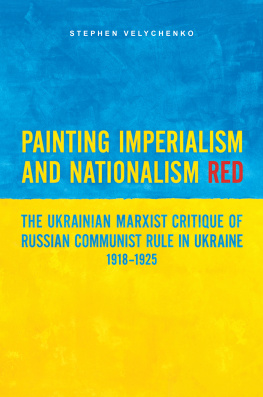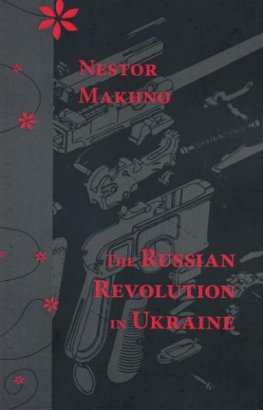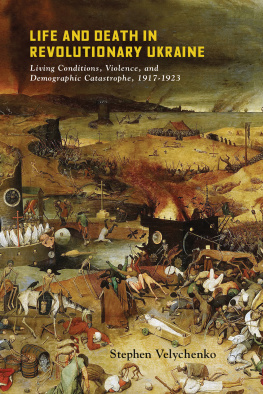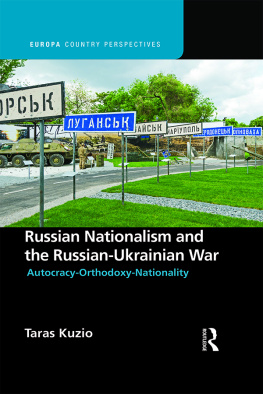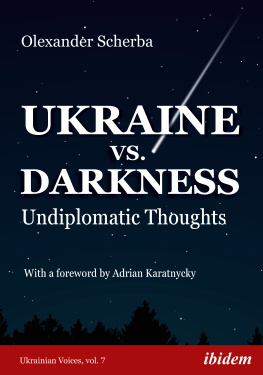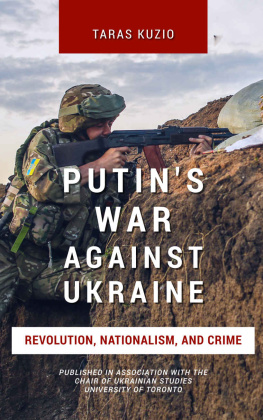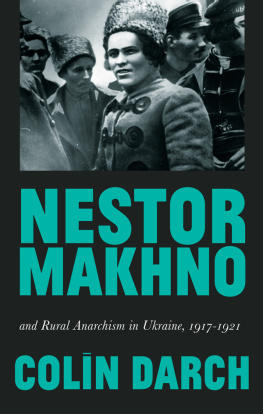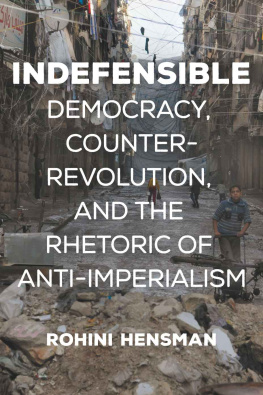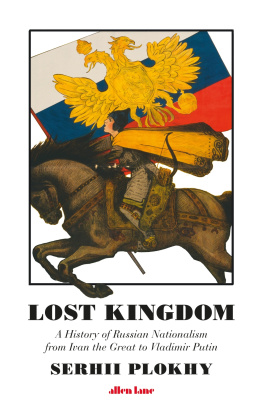Wherever Communism is in power, the ruling class transforms it into an ideology whose real sources are nationalism, racism or imperialism If the whole world were Communist it would either have to be dominated by a single imperialism, or there would be an unending series of wars between the Marxist rulers of different countries.
The Emergence of National Communism
Scholars have normally associated national communism with the countries of the old Soviet Bloc. Milovan Djilas popularized the term in his New Class (1957): No single form of communism exists in any other way than as national communism. In order to maintain itself it must become national. A few years earlier, the then ex-communist Manadbendra Roy had noted: Communism in Asia is essentially nationalism painted Red. However, the Dutch social democrat Pannakoek and Russian monarchists Nicholas Ustrialov and Vasili Shulgin had pointed out already in 1920 that it was the Russians who first nationalized communism. Lenins Social Democratic Party was compelled to function clandestinely: it was conspiratorial, it organized through place of work not residence, it admitted full-time activists only, and it robbed banks to finance itself. Also distinguishing it from other social democratic parties was the primacy it gave to its declass intellectuals as admitted by Russian delegates themselves at the 1904 socialist conference in Amsterdam. In so far as Russian Bolshevism was the product of a specific place and ethnic group, its dispersion even
By 1917, Lenins party was distinctly Russian by virtue of the ethnic origins of most of its members and because its organizational structure and values reflected the centralized autocratic Russian political culture from which they had emerged. The economic and political conditions of his [Lenins] Russian background had frozen him in a kind of fundamentalism that was felt [by European socialists] to be hopelessly out of tune with contemporary reality. that dismissed rural populations as backward and reactionary. Such people consequently refused to learn and use Ukrainian, although they lived and worked in Ukraine. Like most of their urban non-party counterparts, Russian Bolsheviks in tsarist Ukrainian territories, can be compared to the Spanish in Latin America or the French in Algeria. That is, like typical settler-colonists they saw no need to learn or use the language of the majority among whom they lived. Within Soviet territory it was not Russians in non-Russian territories who had to become bilingual to get good jobs; it was socially mobile non-Russians. Ukrainian communists argued that under soviet, as under tsarist rule, linguistic Russification remained a first step towards cultural and ethnic assimilation. Accordingly, not all Russified Ukrainians who before 1917 viewed their origins and their parents language as a stigma saw any reason to change their attitudes as citizens of Soviet Ukraine.
Russian Bolsheviks claimed that their values were universal. They considered themselves internationalists, not national communists a term that Lenin in Left-Wing Communist an Infantile Disorder (1920) reserved for parties that did not follow his dictates. Although its members were oblivious to how much of a Russian national phenomenon it was, the Bolsheviks were nonetheless the first national communist party. Former monarchists who had decided to support the RCP during the 1920s because they thought it would restore private property as well as restore Russia as an imperial great power described themselves and the regime as national Bolshevik. An intellectual current rather than a political party, this group enjoyed considerable support among rank-and-file Russian party members. Trotsky, as well as Lenin, Zinoviev, and Bukharin at first, condemned this current and the idea of using Russian nationalism to build the soviet state that is, they did not want Russian nationalism and imperialism to be painted red. But they never explained how they would keep the Soviet Russia and the soviet centralism they advocated separate from Russian interests, language, and culture. For instance, at a time when UCP stationery had Ukrainian and Esperanto letterhead, RCP leaders did not advocate Esperanto as a politically neutral All-Union alternative to Russian.
One characteristic that the Russian Bolsheviks did share with British, French, and German SDs until 1918 was a refusal to allow separate organizations within the party for subject nationalities within the empire. Lenin claimed that his party was the single legitimate representative not just of ethnic or Great Russias workers but of all workers in the Russian empire (Rossiia). When in power, Bolshevik leaders refused separate representation in the Comintern to national communist parties from any former Russian-ruled territories they controlled; thus, they quashed two attempts by Ukrainians for membership in 1920 and 1924. This was contrary to Engelss views on party organization, as expressed in his unpublished defence of the Irish claim in 1872 for separate status from Britain in the International:
The Irish formed, to all intents and purposes, a distinct nationality of their own, and the fact that they used the English language could not deprive them of the right, common to all, to have an independent national organisation within the International The position of Ireland with regard to England was not that of an equal, it was that of Poland with regard to Russia. What would be said if this Council called upon Polish sections to acknowledge the supremacy of a Russian Federal Council in Petersburg, or upon Prussian Polish, North Schleswig, and Alsatian sections to submit to a Federal Council in Berlin ? If members of a conquering nation called upon the nation they had conquered and continued to hold down to forget their specific nationality and position, to sink national differences and so forth, that was not Internationalism, it was nothing else but preaching to them submission to the yoke, and attempting to justify and to perpetuate the dominion of the conqueror under the cloak of Internationalism. It was sanctioning the belief, only too common among the English working men, that they were superior beings compared to the Irish, and as much an aristocracy as the mean whites of the Slave States considered themselves to be with regard to the Negroes If the motion [on subordination] was adopted by the Council, the Council would inform the Irish working men, in so many words, that, after the dominion of the English aristocracy over Ireland, after the dominion of the English middle class over Ireland, they must now look forth to the advent of the dominion of the English working class over Ireland.

